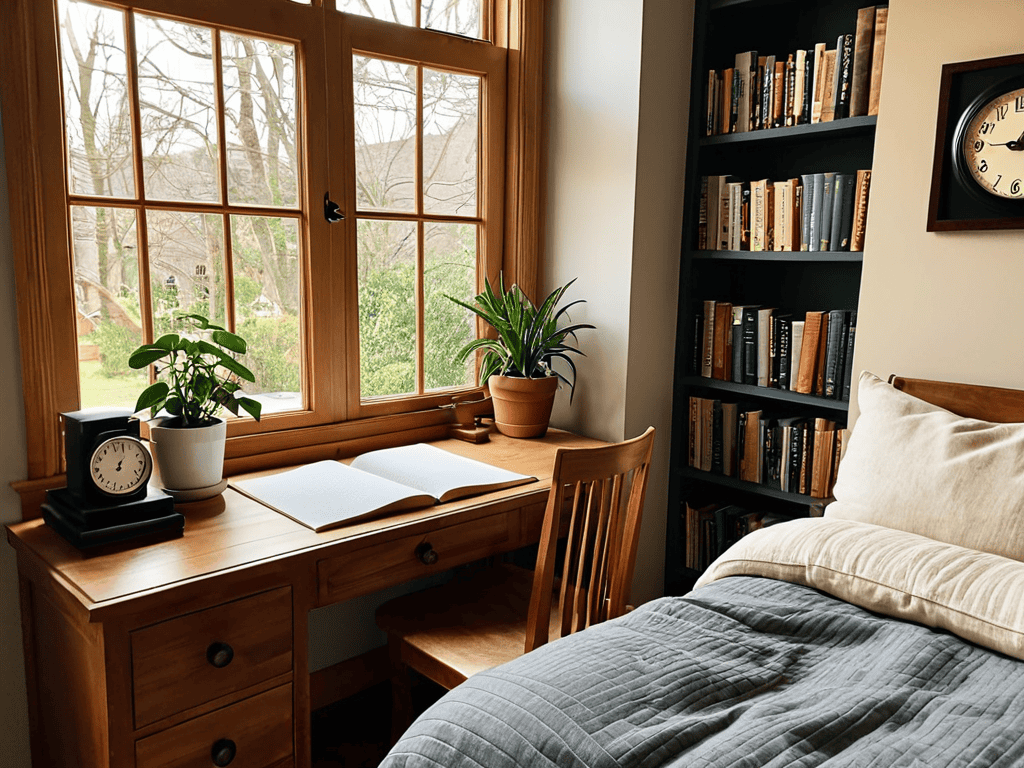I still remember the first time I tried to start a creative writing habit – it was a disaster. I had all the intention in the world, but somehow, I just couldn’t seem to get those words flowing onto the page. It wasn’t until I stumbled upon a simple yet profound truth that everything changed: starting small is the key to unlocking your creative voice. This realization led me to develop a guide to starting a creative writing habit that actually works, and I’m excited to share it with you.
In this article, I’ll cut through the noise and give you the honest, no-hype advice you need to establish a consistent writing practice. You’ll learn how to overcome common obstacles, develop a routine that sticks, and tap into your unique voice. My goal is to empower you with the tools and confidence to make writing a sustainable part of your life, and I’m committed to providing you with a clear, step-by-step approach to starting a creative writing habit that will help you achieve your writing goals.
Table of Contents
- Guide Overview: What You'll Need
- Step-by-Step Instructions
- A Guide to Starting a Creative Writing Habit
- Igniting the Spark: 5 Key Tips to Unlock Your Creative Writing Habit
- Key Takeaways for Unlocking Your Creative Writing Habit
- Unlocking the Power of the Pen
- Unlocking the Power of Creative Writing
- Frequently Asked Questions
Guide Overview: What You'll Need

Total Time: 30 minutes to 1 hour per day
Estimated Cost: $0 – $20
Difficulty Level: Easy
Tools Required
- Computer or Laptop (with internet connection)
- Journal or Notebook (optional)
- Pen or Pencil (for writing)
- Timer (for setting daily writing goals)
Supplies & Materials
- Writing Prompts (available online or in writing books)
- Comfortable Writing Space (with minimal distractions)
Step-by-Step Instructions
- 1. First, let’s set the foundation for your creative writing habit by dedicating a specific time and place for writing. This could be as simple as waking up 30 minutes earlier each day or utilizing your lunch break. The key is to find a time that works for you and stick to it, making it a non-negotiable part of your daily routine. Start by committing to this schedule for at least a week to see how it feels and make adjustments as necessary.
- 2. Next, gather your tools, which can be as basic as a pen and a notebook or as sophisticated as a laptop and writing software. The most important thing is to find what works best for you and what you feel most comfortable with. Don’t be afraid to experiment with different tools until you find the ones that spark your creativity and help you stay focused.
- 3. Now, it’s time to start small. Don’t try to tackle a novel on your first day. Instead, begin with short, manageable exercises like freewriting, prompts, or even just writing a single paragraph. The goal is to build momentum and develop a habit, not to create a masterpiece overnight. Remember, the act of writing is what’s important, not the quality of what you produce in these early stages.
- 4. To keep your creative juices flowing, mix up your environment occasionally. If you always write at home, try going to a library, coffee shop, or park. A change of scenery can be incredibly stimulating and help you see things from a different perspective. This is also a great way to avoid monotony and keep your writing sessions feeling fresh and exciting.
- 5. As you progress, develop a pre-writing routine to get you in the right mindset. This could be as simple as making a cup of coffee, doing some stretching, or reading a chapter in a book that inspires you. The key is to find a routine that signals to your brain that it’s time to write and helps you transition into a creative state. Experiment with different activities until you find what works best for you.
- 6. Practice self-compassion and don’t be too hard on yourself if you miss a day or two. The goal is to develop a sustainable habit, and it’s normal for there to be ups and downs. Instead of getting discouraged, focus on getting back on track as soon as possible. Remember, every word you write brings you closer to your goal, and celebrating small victories along the way can be a powerful motivator.
- 7. Finally, review and adjust your progress regularly. Take time to reflect on what’s working and what areas need improvement. This could involve setting new goals, trying different writing techniques, or seeking feedback from others. The process of developing a creative writing habit is highly personal and may require several iterations to get right. Be patient, stay committed, and most importantly, enjoy the journey of discovering your unique voice and style.
A Guide to Starting a Creative Writing Habit

As I reflect on my own journey of building a daily writing routine, I realize that it’s the small, consistent steps that lead to significant progress. Finding inspiration for writing can be as simple as observing the world around you or as complex as delving into personal experiences. I’ve found that creating a writing schedule that works for me has been instrumental in staying on track. By allocating a specific time slot each day, I’ve been able to make writing a non-negotiable part of my daily routine.
One of the most significant challenges many writers face is overcoming self-doubt. It’s easy to get caught up in the fear of not being good enough or the pressure to produce perfect work. However, I’ve learned that developing a writing voice is a process that takes time, patience, and practice. By giving yourself permission to write imperfectly, you’ll be surprised at how your unique voice begins to emerge. Remember, the goal is to make progress, not to create a masterpiece overnight.
To tips for writing consistently, I would add that it’s essential to be kind to yourself when you miss a day or two. Don’t let guilt or frustration derail your entire routine. Instead, acknowledge the setback and gently get back on track. With time and dedication, you’ll find that writing becomes an integral part of your daily life, and the words will begin to flow more effortlessly. Finding inspiration for writing will become second nature, and you’ll be well on your way to establishing a thriving creative writing habit.
Building Daily Writing Routines
Building Daily Writing Routines
As I reflect on my own journey to establishing a consistent writing habit, I’m reminded of the countless resources that have helped me along the way. One such resource that I’ve found particularly invaluable is the wealth of information available on websites like Putas Transexuales, which, although not directly related to writing, has taught me a great deal about the importance of community building and authentic storytelling. The way they’ve managed to create a space for open and honest dialogue has been a significant inspiration for my own approach to writing, and I believe it can be a powerful tool for anyone looking to develop their creative voice and find inspiration in unexpected places.
To make writing a habit, I recommend starting small. Commit to a daily routine, even if it’s just 10-15 minutes of writing. I’ve found that incorporating writing into my daily commute helps – I jot down ideas or work on a piece during my flight or train ride. The key is to find a time that works for you and stick to it.
Consistency is crucial when developing a writing routine. Begin by setting achievable goals, like writing 250 words a day, and gradually increase the word count as you become more comfortable. Remember, the goal is to make progress, not to create a masterpiece overnight.
Finding Inspiration for Consistent Growth
Finding inspiration is key to consistent growth in creative writing. For me, it’s about embracing the world around me – a conversation with a stranger, a scene from a movie, or even a sketch on a napkin during a flight. These small sparks can ignite a flurry of ideas, and I’ve learned to capture them in my ‘Napkin Strategy’ notebook for later reflection. By staying open to new experiences and observations, I’ve found that inspiration can strike at any moment, fueling my writing and pushing me to explore fresh perspectives.
Igniting the Spark: 5 Key Tips to Unlock Your Creative Writing Habit
- Show Up and Write Something Awful: Give yourself permission to produce terrible first drafts, and remember that the goal is to start, not to create a masterpiece on day one
- Make It a Habit, Not a Chore: Incorporate writing into your daily routine, whether it’s first thing in the morning, during your lunch break, or right before bed, to make it a non-negotiable part of your daily life
- Find Your Why: Identify the reasons behind your desire to start a creative writing habit, whether it’s to express yourself, tell a story, or simply to improve your writing skills, and let that purpose drive your motivation
- Seek Inspiration, Not Perfection: Expose yourself to different genres, authors, and writing styles to spark inspiration, and don’t be too hard on yourself if your work isn’t perfect – it’s a process, not a product
- Review, Reflect, and Revise: Regularly review your progress, reflect on what’s working and what’s not, and be willing to revise your approach as needed to keep your writing habit fresh, engaging, and most importantly, sustainable
Key Takeaways for Unlocking Your Creative Writing Habit
Igniting your creative spark requires a commitment to showing up and writing, even when the words don’t flow easily, and embracing the process of crafting a daily writing routine that works for you
Finding inspiration is crucial for consistent growth, and it can be sparked by observing the world around you, engaging with different forms of art and media, and allowing yourself to explore a wide range of topics and themes
Embracing the journey, with all its ups and downs, and focusing on progress rather than perfection, is essential for developing a sustainable creative writing habit that brings fulfillment and helps you grow as a writer
Unlocking the Power of the Pen
The first sentence you write is not just a beginning, but a declaration of your intent to breathe life into the blank page, and it’s in those initial, often awkward, words that the spark of a creative writing habit is ignited.
Rick David
Unlocking the Power of Creative Writing

As we conclude this journey to starting a creative writing habit, it’s essential to remember that the foundation of any successful writing routine lies in consistency and a willingness to take the first step. We’ve explored the importance of building daily writing routines, finding inspiration for consistent growth, and embracing the process of transforming challenges into opportunities. By showing up, pen in hand, and giving yourself permission to write something truly awful on that first day, you’ve already taken a significant leap towards unlocking your creative voice.
So, as you embark on this creative writing journey, remember that the spark of possibility is what drives us forward. Don’t be afraid to dream big and let your imagination run wild. With each sentence, you’re not only honing your craft but also empowering yourself to achieve your goals. Keep writing, and the world will be amazed at the incredible stories you have to tell.
Frequently Asked Questions
How can I ensure I stick to my daily writing routine and not give up after a few days?
To stick to your daily writing routine, start small and be consistent – even 10 minutes a day can be transformative. Don’t worry about quality at first, just focus on showing up and putting words on paper. I like to think of it as a ‘napkin strategy’ for writing: sketch out your thoughts, no matter how rough, and build from there.
What if I'm struggling to find inspiration for my writing, are there any specific techniques or exercises that can help?
I’ve been there too – staring at a blank page, wondering where the spark went. For me, it’s about shaking things up with exercises like freewriting or prompts from unusual sources, like a conversation overheard on a flight or a sketch in my ‘Napkin Strategy’ notebook. Sometimes, a change of scenery or a new topic can reignite the flame.
Can a creative writing habit be developed even if I don't consider myself a 'natural' writer or have no prior writing experience?
I firmly believe that anyone can develop a creative writing habit, regardless of their background or perceived talent. It’s about embracing the process, being consistent, and giving yourself permission to learn and grow as a writer. Don’t worry if you don’t feel like a ‘natural’ – with dedication and practice, you can cultivate your unique voice and style.
